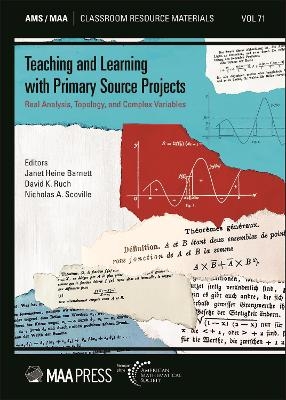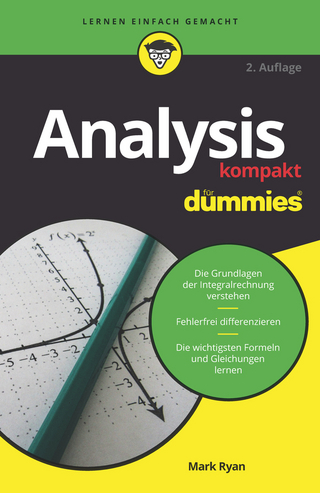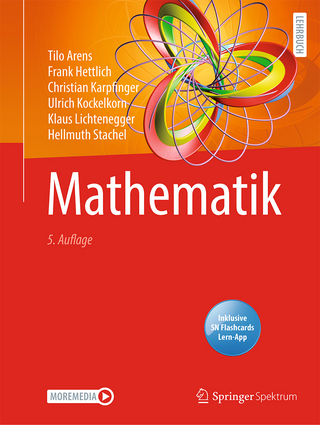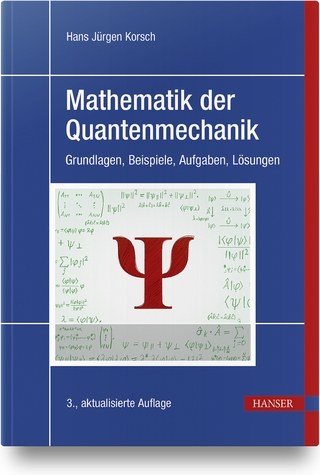
Teaching and Learning with Primary Source Projects
American Mathematical Society (Verlag)
978-1-4704-6989-4 (ISBN)
It appears to me that if one wants to make progress in mathematics one should study the masters and not the pupils."" —Niels Henrik Abel Recent pedagogical research has supported Abel's claim of the effectiveness of reading the masters. Students exposed to historically based pedagogy see mathematics not as a monolithic assemblage of facts but as a collection of mental processes and an evolving cultural construct built to solve actual problems. Exposure to the immediacy of the original investigations can inspire an inquiry mindset in students and lead to an appreciation of mathematics as a living intellectual activity. TRIUMPHS (TRansforming Instruction in Undergraduate Mathematics via Primary Historical Sources) is an NSF-funded initiative to design materials that effectively harness the power of reading primary historical documents in undergraduate mathematics instruction. Teaching and Learning with Primary Source Projects is a collection of 24 classroom modules (PSPs) produced by TRIUMPHS that incorporate the reading of primary source excerpts to teach core mathematical topics. The selected excerpts are intertwined with thoughtfully designed student tasks that prompt students to actively engage with and explore the source material. Rigorously classroom tested and scrupulously edited to comply with the standards developed by the TRIUMPHS project, each of the PSPs in this volume can be inserted directly into a course in real analysis, complex variables, or topology and used to replace a standard textbook treatment of core course content. The volume also contains a comprehensive historical overview of the sociocultural and mathematical contexts within which the three subjects developed, along with extensive implementation guidance. Students and faculty alike are afforded a deeper classroom experience as they heed Abel's advice by studying today's mathematics through the words of the masters who brought that mathematics to life. Primary sources provide motivation in the words of the original discoverers of new mathematics, draw attention to subtleties, encourage reflection on today's paradigms, and enhance students' ability to participate equally, regardless of their background. These beautifully written primary source projects that adopt an ``inquiry'' approach are rich in features lacking in modern textbooks. Prompted by the study of historical sources, students will grapple with uncertainties, ask questions, interpret, conjecture, and compare multiple perspectives, resulting in a unique and vivid guided learning experience. --David Pengelley, Oregon State University
Janet Heine Barnett, Colorado State University Pueblo, CO, David K. Ruch, Metropolitan State University of Denver, CO. Nicholas A. Scoville, Ursinus College, Collegeville, PA.
J. H. Barnett, D. K. Ruch, and N. A. Scoville, Contents; Introduction: J. H. Barnett, D. K. Ruch, and N. A. Scoville, Teaching and Learning with Primary Source Projects; J. H. Barnett, D. K. Ruch, and N. A. Scoville, PSP Summaries: The Collection at a Glance; J. H. Barnett, Historical Overview; Real Analysis: J. H. Barnett, Why Be So Critical? Nineteenth-Century Mathematics and the Origins of Analysis; D. Ruch, Investigations into Bolzano's Bounded Set Theorem; M. P. Saclolo, Stitching Dedekind Cuts to Construct the Real Numbers; D. Ruch, Investigations into d'Alembert's Definition of Limit; D. Ruch, Bolzano on Continuity and the Intermediate Value Theorem; N. Somasunderam, Understanding Compactness: Early Work, Uniform Continuity to the Heine-Borel Theorem; D. Ruch, An Introduction to a Rigorous Definition of Derivative; J. H. Barnett, Rigorous Debates over Debatable Rigor: Monster Functions in Introductory Analysis; D. Ruch, The Mean Value Theorem; D. Ruch, Euler's Rediscovery of $e$; D. Ruch, Abel and Cauchy on a Rigorous Approach to Infinite Series; D. Ruch, The Definite Integrals of Cauchy and Riemann; J. H. Barnett, Henri Lebesgue and the Development of the Integral Concept; Topology: N. A. Scoville, The Cantor Set before Cantor; N. A. Scoville, Topology from Analysis; N. A. Scoville, Nearness without Distance; N. A. Scoville, Connectedness: Its Evolution and Applications; N. A. Scoville, Connecting Connectedness; N. A. Scoville, From Sets to Metric Spaces to Topological Spaces; N. A. Scoville, The Closure Operation as the Foundation of Topology; N. A. Scoville, A Compact Introduction to a Generalized Extreme Value Theorem; Complex Variables: D. Klyve, The Logarithm of $-1$; D. Ruch, Riemann's Development of the Cauchy-Riemann Equations; D. Ruch, Gauss and Cauchy on Complex Integration.
| Erscheinungsdatum | 09.01.2024 |
|---|---|
| Reihe/Serie | Classroom Resource Materials |
| Verlagsort | Providence |
| Sprache | englisch |
| Maße | 178 x 254 mm |
| Gewicht | 272 g |
| Themenwelt | Mathematik / Informatik ► Mathematik ► Analysis |
| Mathematik / Informatik ► Mathematik ► Geometrie / Topologie | |
| ISBN-10 | 1-4704-6989-8 / 1470469898 |
| ISBN-13 | 978-1-4704-6989-4 / 9781470469894 |
| Zustand | Neuware |
| Haben Sie eine Frage zum Produkt? |
aus dem Bereich


